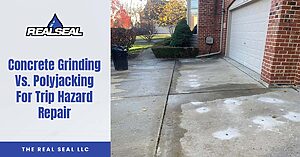Working with contractors for home repair or renovation can be a tricky undertaking. Often, you may receive a quote before a contractor starts a job. So, what happens when a contractor gives you a quote? Here is some important information you should know about quotes so you can avoid unwanted costs and erroneous work.
An Estimate vs. a Quote
The first thing to understand is the difference between an estimate and a quote, as people sometimes believe the two to be one and the same. An estimate is the amount of money that the contractor thinks the job will take to complete. They may communicate this information through words or put in writing. You should never agree to an estimate thinking that the given amount is exactly what you will pay. However, any increase in price should generally stay within 10 to 15% of that new final cost. You may get an estimate in writing that states the contractor will not go above a certain percentage to make it safer.
In contrast, a quote specifies the precise cost of a job. The contractor has an obligation to complete the job at that price and cannot put on additional charges without your consent. When both parties have agreed to a quote, they are bound by the contract. For this reason, the quote should be in writing and detail specifics about the job.
Getting a Quote
Preparation
Before you start calling contractors, you should research the contractors you’re considering. Through recommendations, reviews, and organizations such as the Better Business Bureau, you can find contractors with a good reputation. They should also have experience in the kind of work you need.
Contact Businesses
Call up those contractors that you think may be the right fit. See if they charge you some money for a quote, then ask for a quote from the ones you want to proceed with. Provide a detailed description of the work that you want them to complete, which may include a layout of the relevant area, materials you want them to use, specifics on how you want things built or repaired, and where you need the work done. Make sure that they give you a quote in writing so that you have proof of it should something go wrong.
Next, compare the costs of the different contractors. Each quote should let you know what work they will do, the costs of materials, how much you will need to pay each subcontractor, and the time that it will take to finish the job. If you see anything that looks odd in the pricing, such as an amount that is much higher or lower for one contractor than it is for the others, be sure to ask questions about it. Once you do this, notify the contractor you choose. You should also call the others that you considered and let them know you have chosen someone for the job.
Changes
Once work begins, the contractor must stick to the quote that they gave you. If they need to make changes in the work and/or price, contractors need to put this in writing and communicate it to you. Only after you accept the changes may they legally proceed. Sometimes contractors may do work differently than you want simply due to miscommunication. You should, therefore, check-in with the contractor frequently to spot these details early and avoid having to redo those aspects of the job.
If you are looking for a credible and skilled company for basement crack repair that won’t jump surprise costs on you, call The Real Seal. We seek to bring you the height of customer service and quality basement repair work so that the process is simple and satisfactory.







13 Responses
[…] establishing what jobs and work you want to be completed, you then need to start getting quotes together. Getting prices and figures for work together upfront (and before work starts) will ensure that the […]
[…] establishing what jobs and work you want to be completed, you then need to start getting quotes together. Getting prices and figures for work together upfront (and before work starts) will ensure that the […]
[…] originally thought (and this is why it is good to have a contingency fund in your budget). Getting quotes and estimates from contractors before a project commences is the best thing to do because this allows you to compare prices. If […]
When a contractor gives you a quote and after the fact puts an additional $300- for materials Is that reasonable
Hi Greta!
$300 is not unreasonable, depending on the size of the job. There are times things are uncovered after the work has started that make the job more complicated and may require more materials.
The best thing to do is ask questions and understand the process to see exactly what the extra materials are for.
What happens if a contractor severely OVER quotes. Estimating 16 hours or work, completing 4 on site and 4 off site? Should the final invoice be amended?
That depends on the contract/agreement you have. Many contractors nowadays have set prices that do not vary with highs and lows of the job. In this case, you likely would not have an amended invoice.
However, if you are working with a contractor that is charging you straight materials time as it’s logged, you should have an amended invoice for less at the end of the job.
What if the final estimate was $30,000 over the original estimate, we had to put $5000 down payment just to get the estimate and for contractor to apply for permit now he says we cannot get our deposit back since final estimate is over budget.
Hi Tamerrial!
Best thing to do would be to have a contract attorney review the contract you signed with your contractor. They will be able to give you the best legal advice on how to handle that situation. Each state and contract is different and will need to be independently evaluated.
My contractor initially said he was going to subcontract out our roof replacement. He ended up doing the roof himself because the subcontractor was unable to work on the roof due to other jobs.
Should our initial quote be changed because there was no subcontractor used?
Hi Connor! If the scope of the work didn’t change, then the quote likely wouldn’t change. You may want to check if the contractor added a percentage to the subcontractor’s original quote. Many times, GCs will add a percentage to each quote they get. In that case, if he did the work himself, that upcharge should be removed from the bill.
So it will depend on how it was charged, but the GC may not be upfront about the upcharge.
The most important thing with a roof is to make sure you got a warranty. Get paperwork.
I’m not that much of a internet reader to be honest but your blogs really nice, keep it up! I’ll go ahead and bookmark your site to come back later. Many thanks
Thank you!!